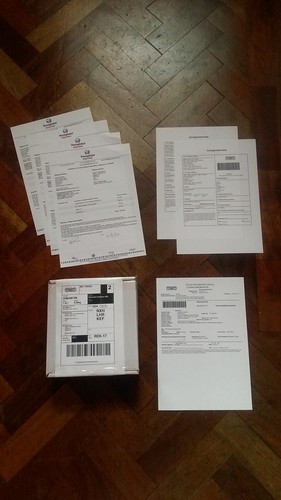Gotcha, @cb. Paywall easily defeated at the Times and scepticism quite reasonable;
Britain will seek to boost trade links with African Commonwealth nations this week in a move described by Whitehall officials as “empire 2.0”.
Liam Fox, the international trade secretary, will promise to build better links with the 52-member organisation when ministers from each country meet in London on Thursday and Friday.
Britain plans to promise all developing nations that their trading relationships with the UK will stay the same or improve after Brexit, guaranteeing that they will not get worse. Ministers want to go further with African nations, however, and start talks to allow Britain to work more closely with an African free trade zone.
“They want to be able to start talking about African free trade deals this week,” a Whitehall source said. The Commonwealth agreed in 2011 to begin formal negotiations to create an African free trade area covering 26 countries from the Cape to Cairo.
Under one plan discussed in Whitehall work on trade relations with African nations could continue until next year when Britain hosts the Commonwealth heads of government meeting in the spring. A deal could then be signed. Whitehall sources say that they also hope to have the outline of deals with Australia, New Zealand and possibly Canada by this stage.
Britain is increasingly bullish that it can begin talks after the Article 50 negotiations commence but before Brexit without suffering any punishment by the European Commission. The “empire 2.0” description was coined by sceptical officials worried about the high priority given to trade deals with Commonwealth nations.
Tim Farron, the Liberal Democrat leader, said: “Trade with our friends in the Commonwealth is important but Boris is deluding himself if he thinks this will replace trade with our European allies. That idea is for the birds. The government can think whatever they want but you cannot have a profitable trade policy with a hard Brexit.”
Trade specialists dismiss the notion that Britain could strike a free-trade deal with the Commonwealth in its entirety because of the number and diversity of the countries involved. Most already have some preferential access to the EU or are negotiating a free-trade deal. Experts urged the government to use the Commonwealth trade talks to discuss the extension of existing deals, like that with South Africa and the recent agreement with Canada.
Lord Marland, chairman of the Commonwealth enterprise and investment council, said that the meeting would explore ways to boost trade between the countries. “When the UK joined the EU it tore up its previous agreements with Commonwealth allies and it will now need to set about rebuilding these relationships for trade,” he said. “Luckily these are old friendships, but as with all relationships, they will require a lot of effort to make them work.”
Ministers will also discuss implementing the World Trade Organisation’s recent trade facilitation agreement. The shared legal and linguistic heritage of Commonwealth nations reduces trading costs between them by an average of 19 per cent, according to research commissioned by the body in 2015.



 posts
posts
